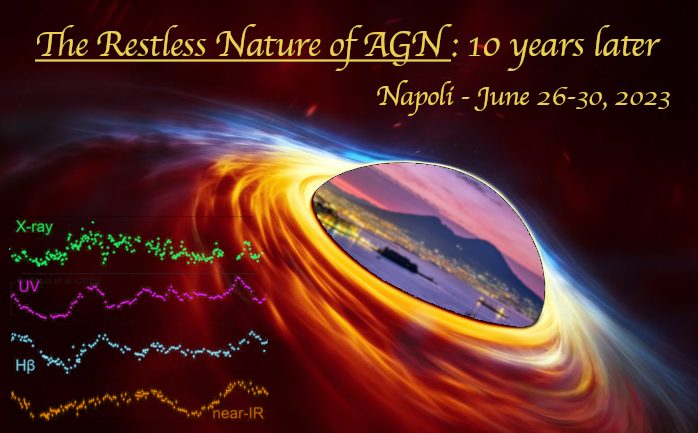Speaker
Description
The disk-reverberation is a leading technique extensively used to study the size and structure of the accretion disk. However, the observed lag spectrum does not agree with the theoretical prediction. The observed time lags are often 2-3 times higher than the expected lags under the first-order reprocessing from the standard accretion disk. This discrepancy motivates us to explore the disk reverberation by modeling the accretion disk or including the contribution from the diffuse re-processor to explain the observed time lags. We study one of the nearest Seyfert galaxies NGC 7469 using the high cadence ground-based observations from the Las-Cumbres Observatory (LCO) and Swift-UVOT. Our results agree with the general finding of time lags which are 2-3 times higher than the expected lags. I will discuss the time lags and the flux-flux study along with the total energy budget in the standard reprocessing scenario.

